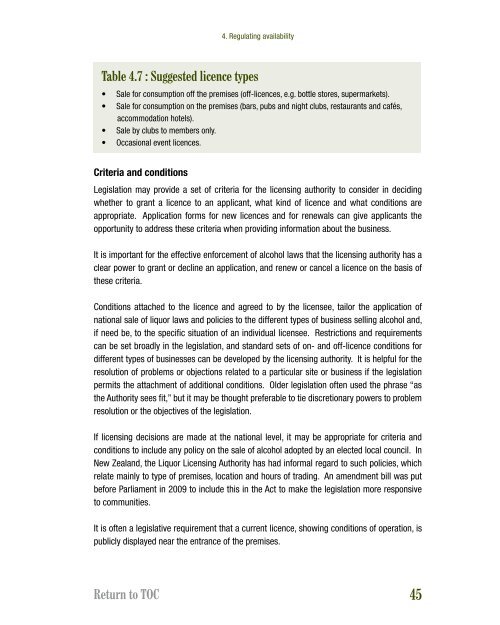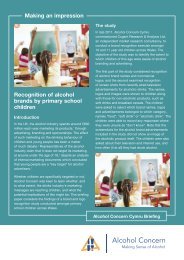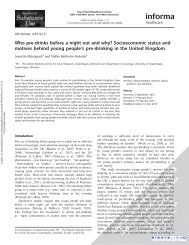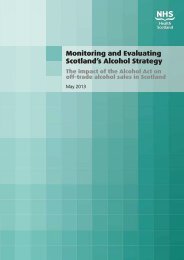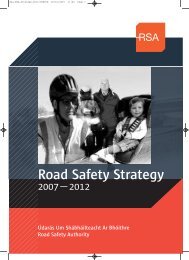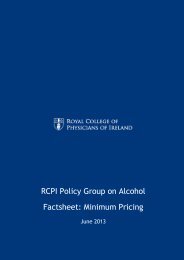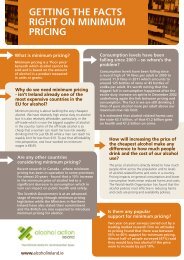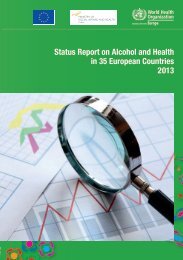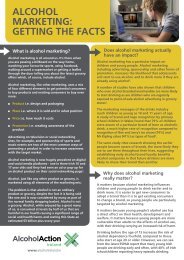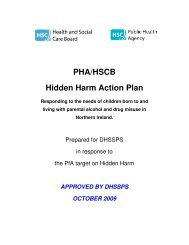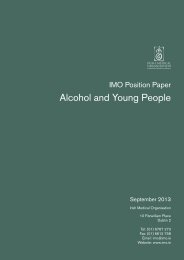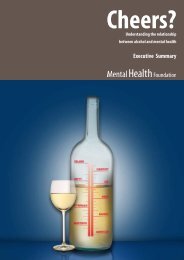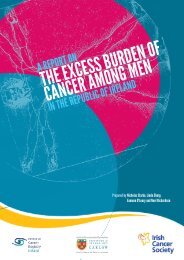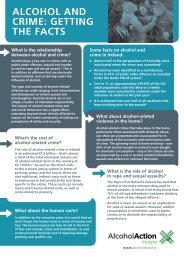Addressing the harmful use of alcohol - WHO Western Pacific Region
Addressing the harmful use of alcohol - WHO Western Pacific Region
Addressing the harmful use of alcohol - WHO Western Pacific Region
Create successful ePaper yourself
Turn your PDF publications into a flip-book with our unique Google optimized e-Paper software.
4. Regulating availability<br />
Table 4.7 : Suggested licence types<br />
• Sale for consumption <strong>of</strong>f <strong>the</strong> premises (<strong>of</strong>f-licences, e.g. bottle stores, supermarkets).<br />
• Sale for consumption on <strong>the</strong> premises (bars, pubs and night clubs, restaurants and cafés,<br />
accommodation hotels).<br />
• Sale by clubs to members only.<br />
• Occasional event licences.<br />
Criteria and conditions<br />
Legislation may provide a set <strong>of</strong> criteria for <strong>the</strong> licensing authority to consider in deciding<br />
whe<strong>the</strong>r to grant a licence to an applicant, what kind <strong>of</strong> licence and what conditions are<br />
appropriate. Application forms for new licences and for renewals can give applicants <strong>the</strong><br />
opportunity to address <strong>the</strong>se criteria when providing information about <strong>the</strong> business.<br />
It is important for <strong>the</strong> effective enforcement <strong>of</strong> <strong>alcohol</strong> laws that <strong>the</strong> licensing authority has a<br />
clear power to grant or decline an application, and renew or cancel a licence on <strong>the</strong> basis <strong>of</strong><br />
<strong>the</strong>se criteria.<br />
Conditions attached to <strong>the</strong> licence and agreed to by <strong>the</strong> licensee, tailor <strong>the</strong> application <strong>of</strong><br />
national sale <strong>of</strong> liquor laws and policies to <strong>the</strong> different types <strong>of</strong> business selling <strong>alcohol</strong> and,<br />
if need be, to <strong>the</strong> specific situation <strong>of</strong> an individual licensee. Restrictions and requirements<br />
can be set broadly in <strong>the</strong> legislation, and standard sets <strong>of</strong> on- and <strong>of</strong>f-licence conditions for<br />
different types <strong>of</strong> businesses can be developed by <strong>the</strong> licensing authority. It is helpful for <strong>the</strong><br />
resolution <strong>of</strong> problems or objections related to a particular site or business if <strong>the</strong> legislation<br />
permits <strong>the</strong> attachment <strong>of</strong> additional conditions. Older legislation <strong>of</strong>ten <strong>use</strong>d <strong>the</strong> phrase “as<br />
<strong>the</strong> Authority sees fit,” but it may be thought preferable to tie discretionary powers to problem<br />
resolution or <strong>the</strong> objectives <strong>of</strong> <strong>the</strong> legislation.<br />
If licensing decisions are made at <strong>the</strong> national level, it may be appropriate for criteria and<br />
conditions to include any policy on <strong>the</strong> sale <strong>of</strong> <strong>alcohol</strong> adopted by an elected local council. In<br />
New Zealand, <strong>the</strong> Liquor Licensing Authority has had informal regard to such policies, which<br />
relate mainly to type <strong>of</strong> premises, location and hours <strong>of</strong> trading. An amendment bill was put<br />
before Parliament in 2009 to include this in <strong>the</strong> Act to make <strong>the</strong> legislation more responsive<br />
to communities.<br />
It is <strong>of</strong>ten a legislative requirement that a current licence, showing conditions <strong>of</strong> operation, is<br />
publicly displayed near <strong>the</strong> entrance <strong>of</strong> <strong>the</strong> premises.<br />
Return to TOC<br />
45


